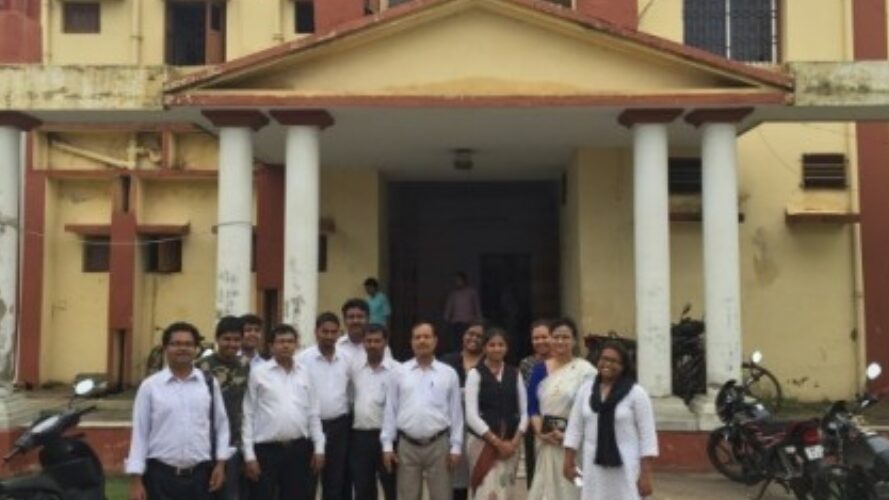Recent Convictions Indicate Crackdown on Impunity for Sex Traffickers
Sex Trafficking
A life-changing moment took place in Kolkata just a few weeks ago: Four traffickers were convicted for crimes exactly four years after IJM helped rescue 10 young women from commercial sexual exploitation.
Sangeeta* is one of those survivors. She was trafficked when she was 12, locked in a hotel room, then routinely raped by men who paid as little as $2.50 to abuse her.
These convictions are just a few of more than a dozen recent rulings, a trend revealing that this district, once infamous for trafficking, is changing.
Seven years ago, Sangeeta’s story was the norm in this area. Driving along this stretch of highway from Kolkata to the port city of Haldia, it would have been impossible to miss the prostitution of minors.
“It used to be a fair, literally a flesh trade – where girls were being bought and sold publicly,” says Biswas. “There were lights, trucks, and girls lining the road. The pimps would call cars to stop and come inside to enjoy the girls.”
The state of West Bengal is a known hub of cross-border and interstate sex trafficking. In 2013, the state registered the highest number of sex trafficking cases in India. In spite of this, it has one of the lowest conviction rates for those cases in the entire country.
Police and Prosecutors Work Together for Justice
Around the same time that IJM started working in this area, the state Criminal Investigations Department and district police began working together to rescue victims and arrest criminals.
But rescue operations are just the beginning of holistic transformation. To stop traffickers from finding and selling other girls in their brothels, it’s imperative that they are held to account.
Learn more about IJM’s Justice System Transformation model in the graphic below.
After police lead the operation and make the arrests, public prosecutors take on the case to secure justice for survivors like Sangeeta.
Amal Ojha is one of the prosecutors working in this area, and IJM has assisted him with building strong cases against traffickers. Although cases can take years—in Sangeeta’s case, four years—Ojha remains passionately committed to seeing justice done.
“The cry of the victim girls motivates me,” he explains. “It’s my sincere duty to serve those in the public who are deprived by the accused.”
A Turning Tide
Since IJM’s first case in 2008, we have seen significant milestones in the fight to end impunity within the district. Courts have convicted 19 traffickers in this region in the past three years—and 14 of those convictions have been handed down in the last four months. The tide is turning.
The latest: On June 22, exactly four years after Sangeeta was rescued, the brothel manager, owner, and the owner’s wife and son who profited from her exploitation were each sentenced to seven years in prison. The conviction ended a lengthy trial riddled with challenges, including the fact that this judgment had been delayed fourteen times.
“In spite of all the challenges of this case,” says Marie Riba, legal consultant for IJM, “the conviction was proven beyond a reasonable doubt and justice was restored to the victim girls.”
Sangeeta has lived in the same aftercare shelter for the past four years, making it her home. She now works full-time at a jewellery production business. She has an exuberant smile, and she loves to laugh and sing with her friends.
The district is also a transformed place.
The highway from Kolkata is still peppered with palm trees and rice paddies, but brothels that were once booming businesses are now dilapidated houses with broken windows and locked doors. What used to be a fair now looks like a ghost town.
*Pseudonym
Partner with our team to bring life-changing rescues to girls like Sangeeta. Learn how today.